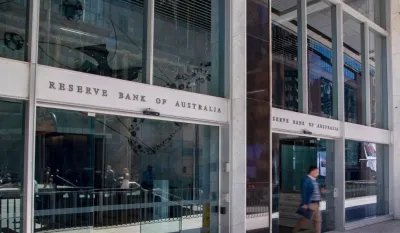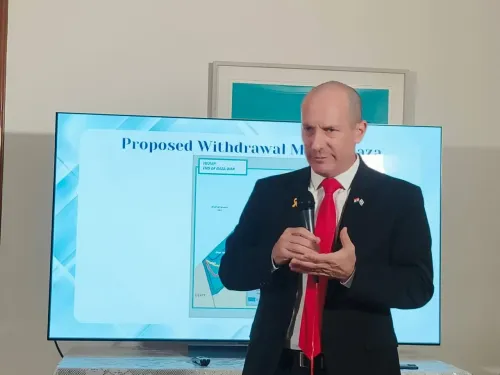Why Did Australia's Central Bank Decide to Keep Interest Rates Unchanged?

Synopsis
Key Takeaways
- RBA maintains cash rate at 3.6%
- Uncertainties in economic activity noted
- Inflation expected to rise in third quarter
- Final budget deficit lower than projections
- Next RBA meeting in early November
Sydney, Sep 30 (NationPress) On Tuesday, Australia's central bank made the decision to keep interest rates steady, a choice that many economists had anticipated.
The Reserve Bank of Australia (RBA) announced that its Monetary Policy Board voted unanimously to maintain the cash rate at 3.6 percent during a meeting held on Tuesday, as reported by Xinhua news agency.
The board, which has reduced the key interest rate by 0.25 percentage points three times in 2025 from 4.35 percent at the beginning of the year, indicated that there are “uncertainties” regarding domestic economic activity and inflation due to both local and international factors.
While the board noted that Australia's annual headline and underlying inflation rates were within the RBA's 2-3 percent target band in the second quarter of 2025, it cautioned that inflation during the third quarter may exceed previous forecasts, according to their monetary policy decision statement.
“Uncertainty in the global economy remains high. There is slightly more clarity on the extent and impact of U.S. tariffs and policy responses from other nations, suggesting that more extreme outcomes are likely to be averted,” stated the board.
The board also expressed that developments in trade policy are expected to negatively influence global economic growth, and a wider range of geopolitical risks continues to pose a “threat” to the global economic landscape.
The Monetary Policy Board will reconvene in early November to reassess the cash rate.
In other news, the Australian government disclosed the final budget outcome for the 2024-25 fiscal year on Monday, showing a final deficit of approximately 18 billion Australian dollars (around 11.8 billion US dollars), which is lower than earlier predictions.
Treasurer Jim Chalmers and Finance Minister Katy Gallagher announced the annual budget results on Monday, revealing an underlying cash deficit of just under 10 billion Australian dollars, or 0.4 percent of gross domestic product (GDP), as of June 30 for the 2024-25 financial year.
The government's Pre-election Economic and Fiscal Outlook (PEFO) 2025, released earlier this year, had anticipated a deficit of 27.9 billion Australian dollars for 2024-25, while the 2022 PEFO projected a deficit of 47.1 billion Australian dollars.
Chalmers and Gallagher stated in a joint statement that the final budget outcomes have amounted to a total of 209 billion Australian dollars, which is better than projections made since the governing Labor Party took power following the 2022 election.
“In dollar terms, we have made more progress on the budget in three years than any government in history,” they asserted.









